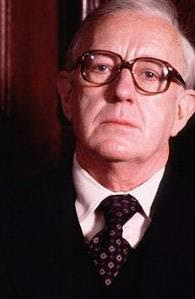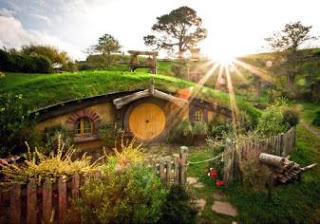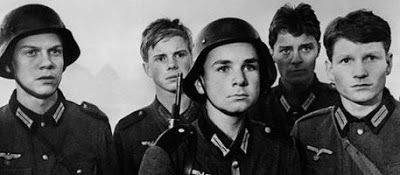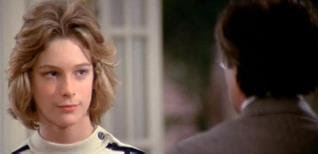If you take this to mean where do we go when we die—I don’t
have much to say about that. People have many different beliefs about an afterlife, beliefs which require a leap of faith.
Although some of the beliefs I have heard of have a certain comforting
appeal to them, I do not actually believe in any of them. I don’t deny that
anything is possible, but I always seem to end up going with what I know to be
a fact. The only thing I know about where we go after death is that I don’t
know. That I know to be the only truth
that I am currently capable of understanding or of knowing.
have much to say about that. People have many different beliefs about an afterlife, beliefs which require a leap of faith.
Although some of the beliefs I have heard of have a certain comforting
appeal to them, I do not actually believe in any of them. I don’t deny that
anything is possible, but I always seem to end up going with what I know to be
a fact. The only thing I know about where we go after death is that I don’t
know. That I know to be the only truth
that I am currently capable of understanding or of knowing.
Where we go from here, in my view, is a question better
applied to our life here and now as mortal humans. I like to know where I am going. For example,
after story time today I will get in my car and go to my daughter’s house after
doing a bit of shopping at Sprouts on the way. After that I will go no where
until tomorrow morning when I will go to my closet, put on some tennis clothes
and drive to the Denver Tennis Club and I will have no trouble finding my
court. After tennis I will do certain things most of which I had planned ahead
of time so, let us say, I know where I am going in my own world in so far as I
am in control of it. Now if the weather does not permit, then I will not do
what I just described. So I guess where we go from here often is conditional.
applied to our life here and now as mortal humans. I like to know where I am going. For example,
after story time today I will get in my car and go to my daughter’s house after
doing a bit of shopping at Sprouts on the way. After that I will go no where
until tomorrow morning when I will go to my closet, put on some tennis clothes
and drive to the Denver Tennis Club and I will have no trouble finding my
court. After tennis I will do certain things most of which I had planned ahead
of time so, let us say, I know where I am going in my own world in so far as I
am in control of it. Now if the weather does not permit, then I will not do
what I just described. So I guess where we go from here often is conditional.
I like to at least have a sense of where my group is going as
well. I believe it is important for citizens and their leaders to know in what
direction their community, state, and country are headed. A good thing to know,
but not always palpable.
well. I believe it is important for citizens and their leaders to know in what
direction their community, state, and country are headed. A good thing to know,
but not always palpable.
There are other factors that make our futures uncertain and
therefore make us feel a bit uneasy. This is an uncomfortable time for our
country, I believe. It must be because so much campaigning is going on we are
all very much aware that our leadership will be changing soon. I must admit, I
am more than uncomfortable about where we would be going if Mr. Trump is elected, or any of the
Republican radical extremists who are running for president. Then the question becomes “Where do I go from
here?” Europe? Canada? I don’t think so. Bad leadership is a good reason to stick
around and fight for what I believe in
and to be sure to vote in upcoming elections, including the local ones.
therefore make us feel a bit uneasy. This is an uncomfortable time for our
country, I believe. It must be because so much campaigning is going on we are
all very much aware that our leadership will be changing soon. I must admit, I
am more than uncomfortable about where we would be going if Mr. Trump is elected, or any of the
Republican radical extremists who are running for president. Then the question becomes “Where do I go from
here?” Europe? Canada? I don’t think so. Bad leadership is a good reason to stick
around and fight for what I believe in
and to be sure to vote in upcoming elections, including the local ones.
I like some structure in my life and so I am a tad
uncomfortable not having a plan for my day—even if that plan is to sit around
and read a book all day long. I like to
know where I am going both in the short term and the long term. I’ve noticed
that when I don’t know where I’m going—one of those brief lulls in the day when
I have finished something and don’t know what I am doing next—I often find
myself going to the refrigerator and not because I’m hungry. Now what good does that do?
uncomfortable not having a plan for my day—even if that plan is to sit around
and read a book all day long. I like to
know where I am going both in the short term and the long term. I’ve noticed
that when I don’t know where I’m going—one of those brief lulls in the day when
I have finished something and don’t know what I am doing next—I often find
myself going to the refrigerator and not because I’m hungry. Now what good does that do?
I play tennis year
round outdoors. I have to admit I am not comfortable in the winter and bad
weather not knowing from week to week whether we will be playing or not. So much for short term planning. I’m not
averse to spontaneity, but generally I like to know where I am going.
round outdoors. I have to admit I am not comfortable in the winter and bad
weather not knowing from week to week whether we will be playing or not. So much for short term planning. I’m not
averse to spontaneity, but generally I like to know where I am going.
I haven’t always known where I was going. There was a period
of time looking back when I was not too sure how to put one foot in front of
the other. Growing up gay certainly added tremendously to the confusion. Our
adult role models help guide us as to where we are headed, but growing up gay
in the 40’s and 50’s there were no lesbian role models—at least not in my life.
Of course there were lesbian women out there, but they could not allow
themselves to be known publicly as Lesbians.
Once I accepted, and acknowledged to myself that I was a lesbian I had a
lot to learn suddenly about where to go from there. I didn’t even know any
lesbians. Once I started looking, however, I did find some friends who helped
“show me the ropes” so to speak. Soon I had many friends, but also I was part
of a movement. Nothing like being part of a movement to help you find your
identity and your place in society. Mostly ‘though where I went after
acknowledging my sexuality was in the direction of the coming out process. This
in itself has proven to be a journey,
quite a long one—at times both rough and arduous as well as smooth and
easy along the way.
of time looking back when I was not too sure how to put one foot in front of
the other. Growing up gay certainly added tremendously to the confusion. Our
adult role models help guide us as to where we are headed, but growing up gay
in the 40’s and 50’s there were no lesbian role models—at least not in my life.
Of course there were lesbian women out there, but they could not allow
themselves to be known publicly as Lesbians.
Once I accepted, and acknowledged to myself that I was a lesbian I had a
lot to learn suddenly about where to go from there. I didn’t even know any
lesbians. Once I started looking, however, I did find some friends who helped
“show me the ropes” so to speak. Soon I had many friends, but also I was part
of a movement. Nothing like being part of a movement to help you find your
identity and your place in society. Mostly ‘though where I went after
acknowledging my sexuality was in the direction of the coming out process. This
in itself has proven to be a journey,
quite a long one—at times both rough and arduous as well as smooth and
easy along the way.
As I said in the beginning, I know where I am going from here
today and maybe tomorrow I know where I’m going or supposed to go. But thinking
about it I realize that except on a day to day basis, I haven’t known where I
was going. Especially going into
different phases of life.
today and maybe tomorrow I know where I’m going or supposed to go. But thinking
about it I realize that except on a day to day basis, I haven’t known where I
was going. Especially going into
different phases of life.
When I married my husband, I didn’t have any particular plans
for the future. Only for the short term.
I don’t remember even planning to be a mother—not until I became
pregnant. As for a job, I sought a job
in the field of work I wanted, but mostly I took what was available at the
time.
for the future. Only for the short term.
I don’t remember even planning to be a mother—not until I became
pregnant. As for a job, I sought a job
in the field of work I wanted, but mostly I took what was available at the
time.
When I retired, I did not know in the long run where I was
going except to say that I would now engage in the things I like to do and
pursue my interests only now in retirement, full time rather than only when I
had a chance. I didn’t really plan where
I was going. I was going to live life as best I could. I honestly think most people conduct their
lives this way.
going except to say that I would now engage in the things I like to do and
pursue my interests only now in retirement, full time rather than only when I
had a chance. I didn’t really plan where
I was going. I was going to live life as best I could. I honestly think most people conduct their
lives this way.
When and if one does
make the choice as to where to go from here the question arises: “Do I ever
arrive?” I don’t think we ever know our
destination—just the direction to take, the road to take. And that choice is
determined by our basic character—our morals, the strength of our convictions,
our sense of justice, our values.
make the choice as to where to go from here the question arises: “Do I ever
arrive?” I don’t think we ever know our
destination—just the direction to take, the road to take. And that choice is
determined by our basic character—our morals, the strength of our convictions,
our sense of justice, our values.
Some have said the
journey is more important than the destination.
journey is more important than the destination.
The way I see it life is a journey with no ultimate
destination. It’s more of a journey with pit stops where one perhaps chooses a
new direction or a different road from time to time.
destination. It’s more of a journey with pit stops where one perhaps chooses a
new direction or a different road from time to time.
In my old age I would like to take the road that keeps me
healthy and happy. But roads often have their barriers and their potholes. So again for the long term I
don’t know where I go from here. But I do know the direction I want to go.
Beyond that I don’t know what happens after this life, but whatever it is I’m
quite sure it’s good.
healthy and happy. But roads often have their barriers and their potholes. So again for the long term I
don’t know where I go from here. But I do know the direction I want to go.
Beyond that I don’t know what happens after this life, but whatever it is I’m
quite sure it’s good.
© 4 Jan 2016
About the Author
Betsy has been active in
the GLBT community including PFLAG, the Denver Women’s Chorus, OLOC (Old
Lesbians Organizing for Change), and the GLBT Community Center. She has been
retired from the human services field for 20 years. Since her retirement, her major
activities have included tennis, camping, traveling, teaching skiing as a
volunteer instructor with the National Sports Center for the Disabled, reading,
writing, and learning. Betsy came out as a lesbian after 25 years of marriage.
She has a close relationship with her three children and four grandchildren.
Betsy says her greatest and most meaningful enjoyment comes from sharing her
life with her partner of 30 years, Gillian Edwards.
the GLBT community including PFLAG, the Denver Women’s Chorus, OLOC (Old
Lesbians Organizing for Change), and the GLBT Community Center. She has been
retired from the human services field for 20 years. Since her retirement, her major
activities have included tennis, camping, traveling, teaching skiing as a
volunteer instructor with the National Sports Center for the Disabled, reading,
writing, and learning. Betsy came out as a lesbian after 25 years of marriage.
She has a close relationship with her three children and four grandchildren.
Betsy says her greatest and most meaningful enjoyment comes from sharing her
life with her partner of 30 years, Gillian Edwards.






